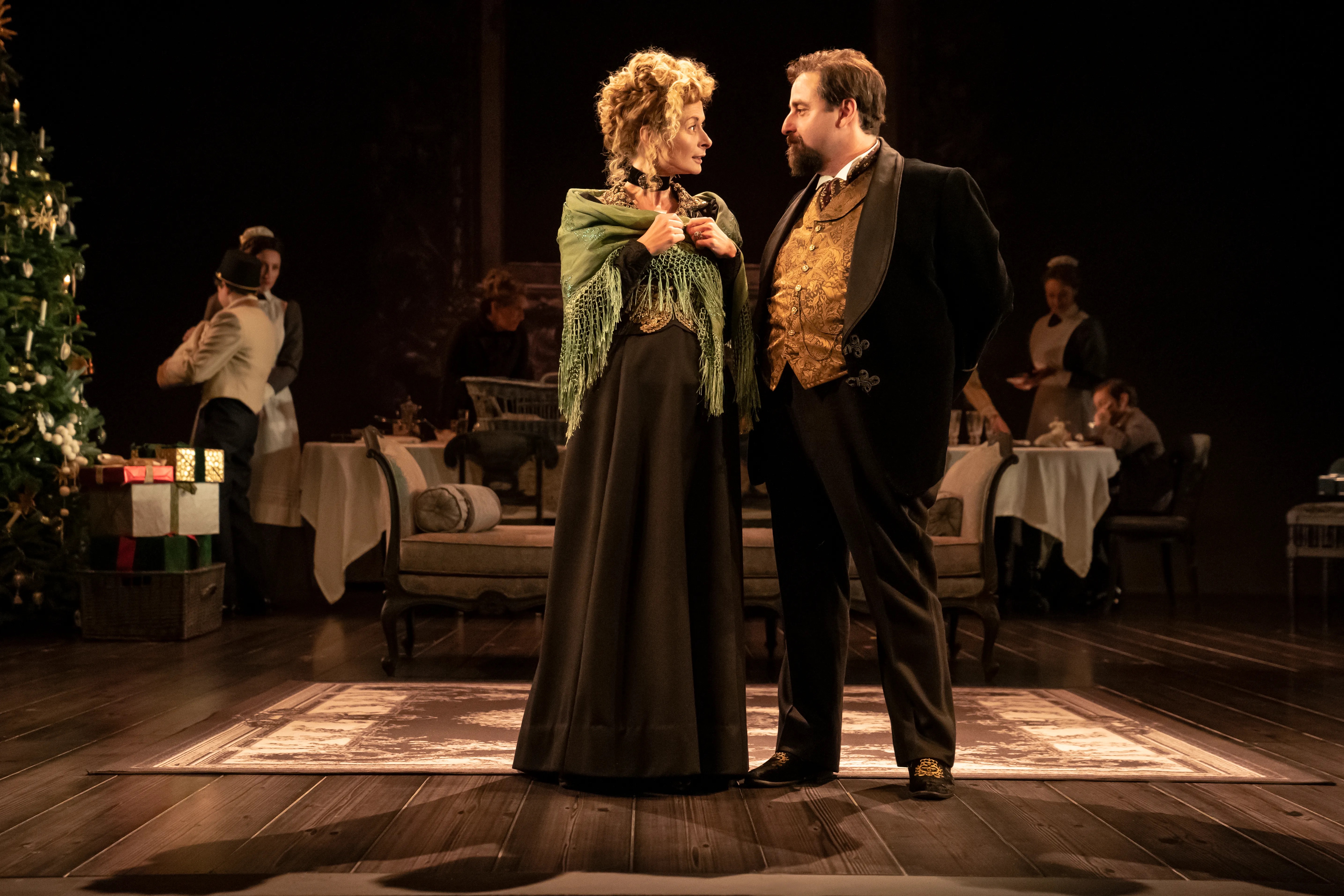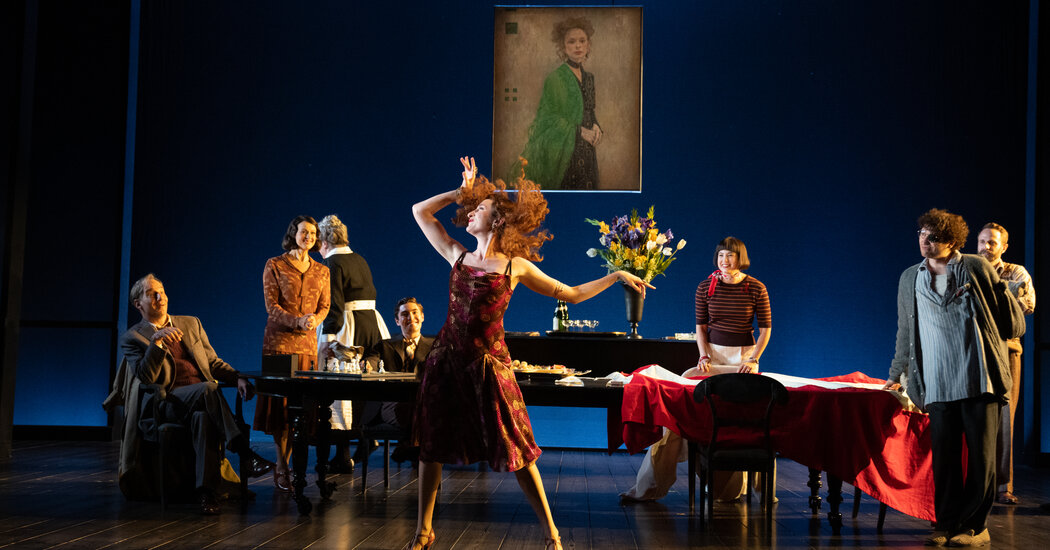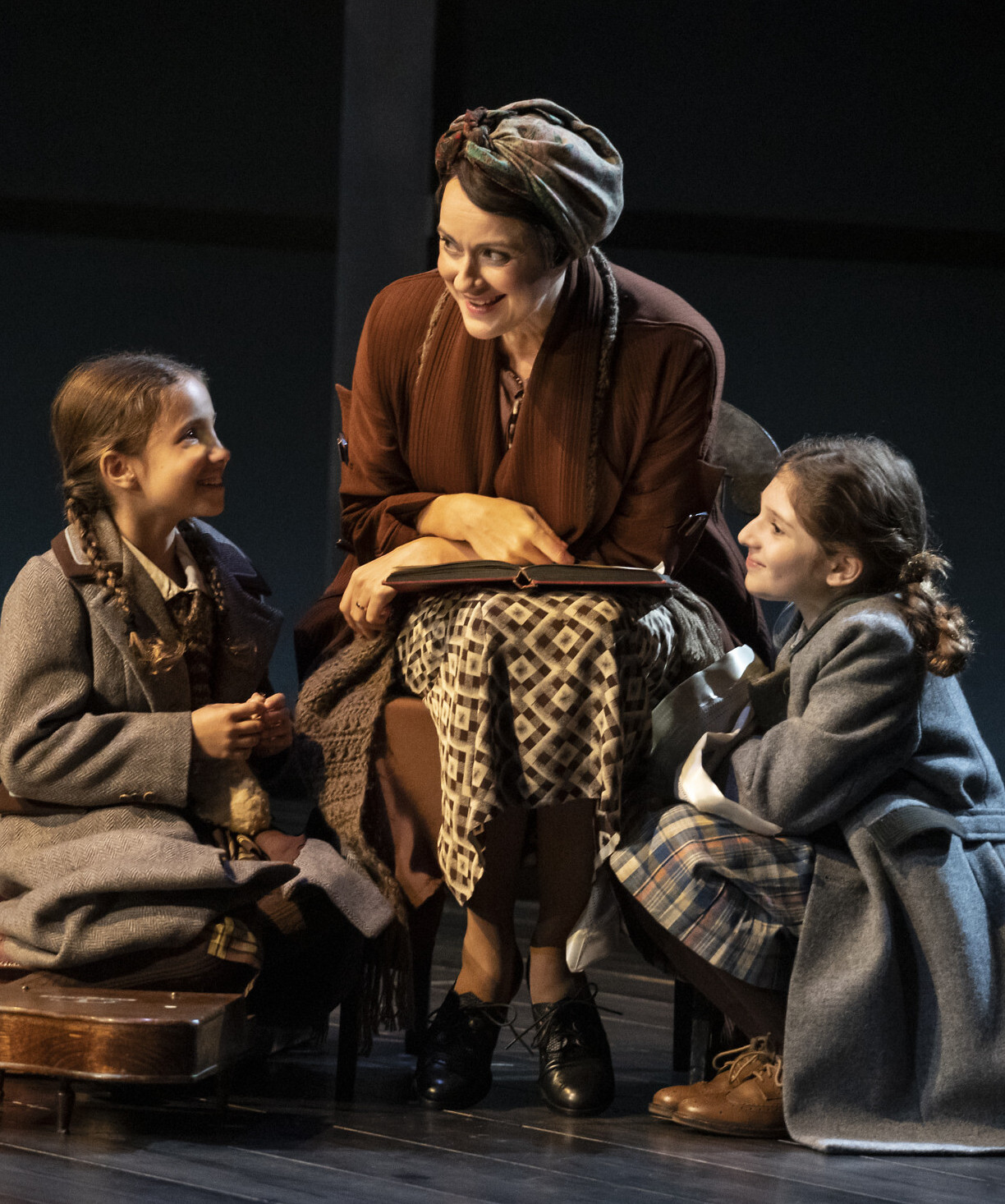


16/06/23
National Theatre At Home
With live theatre events relatively thin on the ground at the moment, it seems a propitious time to indulge in NT Live’s ‘At Home’ selection – and the obvious first choice is Tom Stoppard’s Leopoldstadt, a play in five acts, which chronicles the lives of the Merz family in Vienna. With a cast of forty actors, this is a mammoth undertaking and, while Patrick Marber’s direction occasionally struggles to contain so many disparate characters, it’s nevertheless an education for me, providing an overview of world events that eventually led the Jewish people to the edge of annihilation.
The play opens in 1899, where Merz family patriarch, Hermann (David Krumholtz), his wife Greta (Faye Castelow), and their extended family are celebrating Christmas. Hermann (like many other Jewish businessmen) has converted to Catholicism in order to prosper in his everyday dealings, but he’s only too aware of the antisemitic sentiment of the true gentiles around him and at the party (where one of the children unthinkingly puts a Star of David at the top of the tree) there is already wistful talk of the idea of a Jewish homeland in Palestine.
As the story progresses – we jump first to one year later, then to the jazz era of the 1920s – we are aware that nothing has improved for the Merz clan and that their freedom to thrive is being rapidly diminished. The next section, set in November 1938 on the evening of Kristallnacht, is perhaps the most harrowing sequence, as the family home is visited by a sneering Nazi overseer, who quite literally gives them their marching orders, his callousness exemplified by the seemingly small act of brazenly stealing Hermann’s beloved fountain pen.
A moving coda, set in 1955, features three of the few survivors of that night, comparing notes and remembering the many – the very many – who died in the Nazi death camps. The play begins with a huge extended family on stage, but as the story progresses, their numbers steadily diminish until there are hardly any of them left and the performance space is almost empty. It’s a powerful moment when, in the final minutes, the rest of the cast drift back to stand behind the three survivors, silent witnesses to their own terrible fates.
While it’s nobody’s idea of an uplifting evening at the theatre, Leopoldstadt – which may well be Stoppard’s swan song – is an important and ambitious piece of theatre that highlights how an entire race of people, perhaps because of their very determination to succeed in the face of overwhelming odds, has been systematically tyrannised and subjugated throughout history.
While the complex nature of the Merz family tree (and the actors doubling as different characters) occasionally gives rise to some confusion as those we first see as children return as adults, it’s worth persevering for the powerful melancholy of that extraordinary epilogue, which for quite some time leaves the live audience in stunned silence before the applause finally begins.
3.8 stars
Philip Caveney


